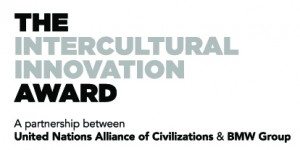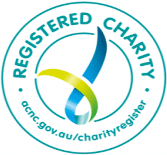Over the past week, two Australian companies, The Fleurieu Milk and Yoghurt Company and Byron Cookie Company, have been bullied into withdrawing their Halal certification on dairy products and biscuits respectively.
It is a minority of people who have been complaining about these companies’ products being halal certified. If we look at their arguments they boil down to the following:
1) It takes away my right to eat normal food.
2) They are in Australia after all, Halal is not part of our culture.
Curious people may be wondering what all the fuss is about. We’re here to demystify what halal is and why Australian companies produce halal-certified food.
What is halal?
Halal is the Arabic word for ‘permissible’. Anything considered halal by Muslims is an action, item or saying they are permitted to take part in.
In terms of food, everything is halal/permissible unless there is evidence from Islamic religious texts to say otherwise. Vegetables are permissible (halal) to eat and any product found in the sea, fish or mammal or muscle, are permissible to consume also. The grey area for permissible food is applied to animals on land and alcohol based products. Simply, the halal stamp gives consumers peace of mind when shopping.
To find out more, you can watch this video to see the humane and ethical treatment that is part of the halal meat process.
Why would companies certify products halal?
The world is filled with a variety of people, with a variety of dietary requirements. And with Australia being a multicultural country based on values of equal rights and opportunity, and giving people a fair go, it is natural to then have many of those food variants available to the Australian consumer market.
Many products with the halal stamp are in fact products void of any animal products or by-products. This is the case for yoghurt, milk, vegemite or biscuits products. Previously consumers would have seen them as vegetarian products. This is part of a trend to replace animal rennet or gelatin with vegetable by-products due to health concerns around the fat and sugar content levels in too many products in the market.
The products which have found their companies under attack by a minority of Australian consumers are in fact targeting products void of animal products. Keith Bryne, Chief Operating Officer for Byron Cookies Company clearly states:
“The Halal company that certifies us is based in Sydney, they come and they audit us and then they go away again, they don’t ‘bless’ our foods, they don’t ‘bless’ our site, there’s no religious context to it, they check our hygiene and they check that there’s no alcohol there.”
Here Keith Bryne makes it clear that no animal by-products or meat are actually used in their biscuits. The halal certification they have is to extend to their customers a sense of trust, which every brand needs, by using a community trusted company to grant the certification.
So really, what’s all the fuss about?
Companies like Four’N Twenty, Mrs. Macs, Vegemite and Cadbury have halal certification for many of their products. It is a shame that bullies and boycotters with misinformation have caused Australian companies to take a step back from a successful, value inclusive and profiting business scheme of halal certification.
Companies like The Fleurieu Milk and Yoghurt Company, Byron Cookie Company and others have had to cancel lucrative business deals due to removing their stamp of approval. In the case of The Fleurieu Milk and Yoghurt Company, it was a requirement for their international supply deal to purchase the certification. This is the case for many other companies which export products overseas.
In the end the right to choice has been taken away from the companies and those Australian consumers who wish to follow the dietary rules of halal eating. The halal stamp is simply the same guarantee and peace of mind that labels like gluten free, vegan, egg free, nut free, wheat free, lactose free, kosher or suitable for vegetarians brings for those wishing to be conscious and aware of the food they consume in the busy and often time constricted shopping lifestyle that modern Australians live in. It is a positive outward trend of a conscious and productive multicultural Australia.



thanks that helps me understand more 🙂
The problem is that halal stamp is NOT on most halal certified products in the supermarket. You are wrong. About 80% of food has this halal certification and regular australian’s and Christians who are not meant to eat halal food CANNOT identify in the store which products are or aren’t certified. Our consumer choice is taken away.
WRONG again, ritual slaughter under halal/ sharia law is NOT humane because they do not stun the animals when their throat is being cut. They have to feel the pain and fear as they die. Regular australian’s, the majority should not be forced to support this through lack of labelling. There is no legislation for it.
The whole country shouldn’t bow down and completely change everything for one religion, it’s discrimination against me, atheists, and every other religion in this MULTICULTURAL country- not Islamic country. We should not convert to any sharia laws like halal.
Look up the words Jizya and Dhimmi. Only the West has to pay fees to make halal food. Milk and honey and fish is naturally halal and every Muslim knows they can eat it; therefore money paid in certification fees is not required. Toothpaste, plastics,catfood, Easter eggs should not have to have fees paid! It’s all a rort to make money for from the West.
The article has addressed all the points you have put forth Jade.
As you have pointed out, this country is multicultural. Many product out there have labeling to make the market an easy place to navigate. The halal labels on products such as cookies and breads etc are not there because of animal meat but also to highlight to consumers that it is also free of animal by-products and any alcohol. Producers are not required to then list ingredients under a certain percentage on product labels. So often, it can be difficult to know with certainty whether or not what you are buying is truthful.
So along with the cultural variety of the nation and the complexities of the consumer market labels like halal, kosher, vegan, nut free, wheat free, egg free and gluten free allow everyone to have the same equal opportunities to purchase and share in the same products. We are able to have variety of choice that far exceeds other areas of the world.
If you have looked at the links cited it is clearly stated that the cost of certification is negligible and the consumers do not feel the effects of this certification. This is from the source of the producers.
Regarding the halal slaughtering of animals, this was not the focus of the topic at hand. However, in NSW it is required that all animals are stunned prior to slaughter, even in the halal animal farms.
About 60% of all Australian producers do certify their items as halal. Most of this is because they export overseas to a large profitable market in countries that require the certification.
Once again, thank you for your contribution to the discussion.
At no time have you explained why this should be funded by the general community? Don’t bother with the company pays or it’s a small cost argument because the end user is the one who gives the money for the product all cost inclusive in price. If it is that important to the Muslim community then they should provide certification and those to do it at a cost to their communities. This would a. Ensure no extortion or possible misuse of funds and b. Unify the community in their support. I also believe this to be the case with Kosher as well. As an example would Muslims tolerate being forced to pay for certification for people of the Sikh faith to have compliant food in their countries? I think not, quite simply user pays or no one does.
Thank you for your comment VJD.
This point has been raised in recent discussions on halal certification. This area is covered in the article.
Everyone has the right to equal access and to have the right to an informed choice, in general, within Australia. We may inquire as to why we do not disagree with the consumer paying for any other certifications or approval stamps for other dietary requirements.
On the issue of misuse of funds, we do not deal in speculation or slander but in facts.
We also do not discuss the issues of other countries as our work is focused locally on Australia.
Again, thank you for your comment as all discussions are welcome.